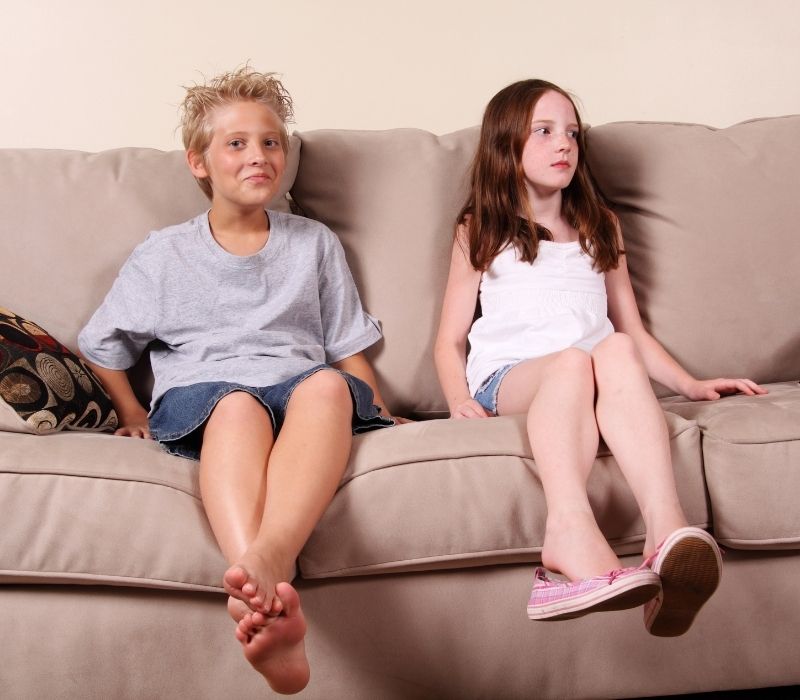Sex Education: We Never Forget That Moment we Learned
“I’ll never forget the first conversation I had with my oldest son about sex,” laughs Metro Health – University of Michigan Health pediatrician Dawn Rosser, M.D. “I sat him down with a book and we reached the part where the book explains how sperm and an egg meet and he responds, ‘Are you serious!? You’ve got to be kidding me!’
“He actually flipped back and forth between pages because he was so shocked by the reality of intercourse. Until that moment, he hadn’t realized that is what those body parts are for.”
Some of us may remember more vividly than others, but we all had our moment of realization about sex. That realization may have come from “the talk” with parents, discussions with friends, or sex education in school. In any case, it was probably an awkward, embarrassing, and maybe even shocking moment.
“I remember my mom gave me a book to read, and then we sat down and talked about it,” Dr. Rosser recalls. “I remember the book detailed way more than I wanted to know, and it felt more uncomfortable for me than my parents.”
Now, as a pediatrician and a parent of four children, Dr. Rosser understands the importance of parents talking to their children about their bodies and sex, with age-appropriate information.

And we don’t just have to talk to them about sex education at puberty. Laying the foundation consistently through their childhood will help children develop a healthy, mature view of sexuality. It will help them feel secure about approaching their parents with questions along the way.
“Kids will hear about their bodies and sex from somewhere. Parents should be that first voice of truth and those conversations can start as early as two or three.”
SEX EDUCATION BY AGE
Sex Education is About More Than Just Intercourse
My husband and I have always talked to our children about their bodies and their rights. It was easy when they were little to have conversations as they took their baths or got dressed.
But now as my kids approach puberty, I’m starting to have my own questions – Will I teach them something too late? Will I get it wrong? Will they be too embarrassed to come to me with questions or problems?
Dr. Rosser has broken down sex education tips by age, with easy, actionable steps for each stage. I think the biggest takeaway is to normalize these conversations from a young age so it takes some of the embarrassment out of the equation. That way, your kids will always feel comfortable coming to you with questions or issues.
Early childhood: Gender and Your Body
Dr. Rosser says when children are ages 2-5, parents should be talking with them about the differences between boys and girls and basic anatomy.
“Just like we ask children to identify their head, shoulders, knees and toes, they also need to identify their more private areas. I would encourage parents to use anatomical names like penis and vagina, so children know those words are not bad.”
Knowing how to properly identify all of their body parts will help children to vocalize where they feel pain or discomfort. It also shows them that these parts are not taboo and something to ignore.
It’s also important to tell children that their bodies belong to them, it’s not appropriate for people other than doctors or parents to touch them, and, even then, it’s only okay in specific circumstances.
Ages 6-8: Self-Care
For this age group, Dr. Rosser says the message is about self-care.
“For girls especially, this is the age where we start to see yeast infections and bladder infections. This can happen if girls sit in wet bathing suits for too long or if they use certain soaps. For uncircumcised boys, this is the age where parents need to walk them through proper cleaning and care.”
Dr. Rosser also encourages parents to ask their children what they know about their bodies and sex.
“It’s difficult to gauge where your child is at, so you have to let them lead the conversation. Ask them what they know, and then expand or correct where needed. You can decide how far to go and how much to tell them.”
Ages 9-10: Pits and Privates
“For children in this age group, it’s all about telling them that their pits and privates need to be washed every day. Basic hygiene,” says Dr. Rosser.
“For instance, my son is in this age group and he just doesn’t realize when he smells. He doesn’t like wearing deodorant and would rather not take a shower. Girls can be the same way.”
Parents should start talking to their children about the changes that will occur during puberty. It’s important to let children know those changes are normal, and they shouldn’t be afraid. Again, it’s an opportunity to ask your children what they know about puberty and sex and let them know you are always available to talk and answer questions.
11-13: Puberty
This is the age where most children are participating in sex education classes at school. They are diving more deeply into their reproductive anatomy and the changes the body is going through physically and emotionally.
Children at this age often feel uncomfortable talking with their parents about puberty and sex, and it’s not easy for parents either, but Dr. Rosser says there’s a key reason why talking is so important.
“Your child is learning all about the functions of their reproductive system and the science of sex, but they aren’t being taught your family’s values or beliefs about sex. This is your opportunity to share and explain your values.”
Dr. Rosser says parents have asked her to talk to their children about sex, but she emphasizes that her role is to talk about science and healthy habits only.
Kids at this age may also have questions about sexual and gender identities, and it’s important they know that you provide a safe place to discuss those topics. Dr. Rosser reminds parents that if they don’t have these conversations, children will look for answers elsewhere.
And if your child searches the internet, he or she may find a lot of misinformation and unhealthy views about sex and relationships.
Ages 14-18: Dating and Emotions
Get ready parents! At this age emotions are swirling and teens are becoming interested in dating.
“Your child will want to explore and experiment and they need to know where the boundaries are,” Dr. Rosser says.
Parents should sit down with their children frequently to discuss feelings, emotions and questions. Let them know what is appropriate to be exploring.
Dr. Rosser says one of the biggest mistakes parents make is assuming they don’t have to talk to their child about healthy sexual relationships because he or she will abstain from sex until marriage.
“Just like we tell our kids to wash their hands to prevent illness and cover their mouth to protect others from getting sick, we need to teach them to prevent sexually transmitted diseases and unwanted pregnancy.”
STDs can have long-term impacts on fertility and health, and at this age it’s difficult for teens to comprehend that reality.
“These conversations are difficult. As a parent of teenagers, I get it,” explains Dr. Rosser. “But this is our job. We teach them to read, to write, to ride a bike and drive a car. Teaching them about healthy sexual relationships is just another part of our job as parents.”
Resources and References About Sex Education
For parents who are interested in educational resources and books, Dr. Rosser suggests:
- For younger children: “What’s the Big Secret” by Laura Krasny and Marc Brown
- Girls: “The Caring and Keeping of You” by American Girl Series (Stages 1 & 2) and “The Period Book” by Karen and Jennifer Gravelle
- Boys: “What’s Going on Down There” by Karen Gravelle
- American Academy of Pediatrics has helpful info on Adolescent Sexual Health and General Info on each age for kids.

